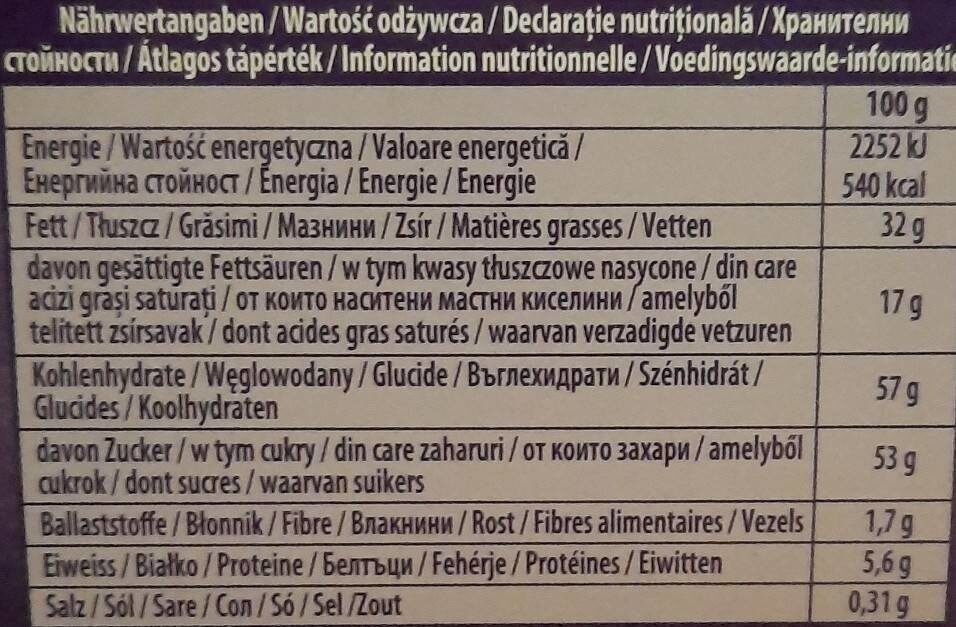Happy Christmas - Milka - 152 g
This product page is not complete. You can help to complete it by editing it and adding more data from the photos we have, or by taking more photos using the app for Android or iPhone/iPad. Thank you!
×
Barcode: 7622201139568 (EAN / EAN-13)
Quantity: 152 g
Packaging: Box, Cardboard, Paperboard
Brands: Milka
Categories: Snacks, Sweet snacks, Cocoa and its products, Confectioneries, Chocolate candies, Bonbons, Assorted chocolate candies
Labels, certifications, awards:
Cocoa Life, Green Dot, Nutriscore, Nutriscore Grade E

Manufacturing or processing places: Belgique
Stores: E.Leclerc
Countries where sold: Germany, United States
Matching with your preferences
Environment
Packaging
Transportation
Threatened species
Report a problem
Data sources
Product added on by openfoodfacts-contributors
Last edit of product page on by moon-rabbit.
Product page also edited by charlesnepote, dorado-jerome, emiljunker, kiliweb, packbot, yuka.sY2b0xO6T85zoF3NwEKvlldmWMfOpT-cDAXvp1Kuxt21LJLOcfZC2pfHYqs, yuka.sY2b0xO6T85zoF3NwEKvln1BVvXYkxLaKh7jumOh7O63Fqfnb4xCurHGKqs, yuka.sY2b0xO6T85zoF3NwEKvlnJ2Yt7OgSncCwXfgE6S-c6RFLKxaPNfwZjnEas.










